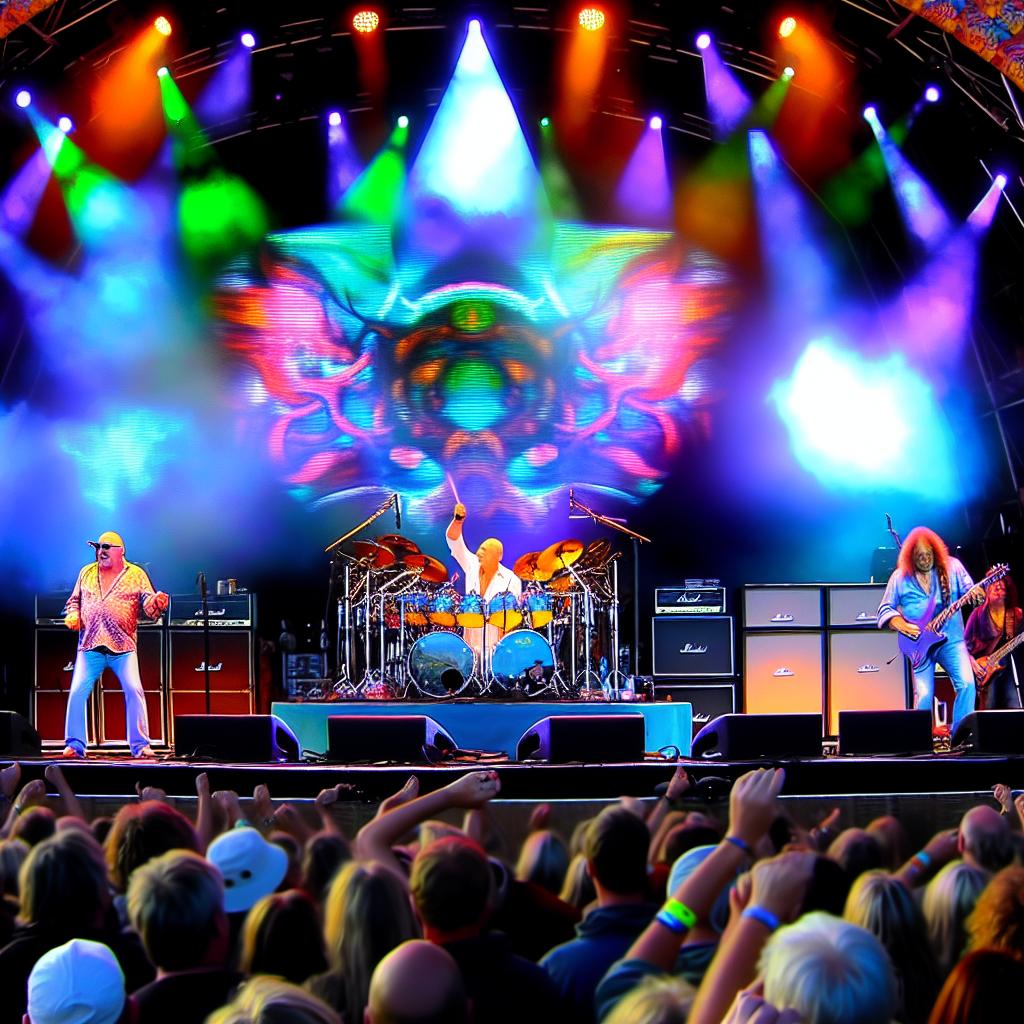The Who’s Performance at the Isle of Wight Festival
The 1970 Isle of Wight Festival stands as one of the significant events in rock history, with The Who delivering a set that is often regarded as a defining moment in their career. This festival was held on a small island off the coast of England and marked a peak in the era of large-scale music festivals.
Context of the Festival
The 1970 festival was the third incarnation of the Isle of Wight Festival, attracting an impressive audience of approximately 600,000 people. This was a remarkable number, considering the logistical challenges of organizing an event of such scale on an island. The lineup boasted numerous iconic performers of the era, including Jimi Hendrix, The Doors, and Leonard Cohen. Despite the formidable roster, The Who’s appearance particularly stands out in the annals of music history.
The event symbolized a peak in the counterculture movement, illustrating the immense popularity of rock music during that era. It took place amidst a backdrop of social change, where music festivals were not only about the music but also about community and collective experiences. Consequently, the Isle of Wight Festival of 1970 became more than just a string of performances; it was a cultural milestone that represented a moment where youth and music converged in a powerful way.
The Band’s Status
By 1970, The Who had already cemented their status as one of the leading rock bands of the world. Their breakthrough album, Tommy, released in 1969, was a rock opera that told the story of a “deaf, dumb, and blind” boy. The album received critical acclaim and complemented the group’s reputation for innovative sound.
The band’s journey to fame began in the early 1960s in the UK. Their music became synonymous with the Mod movement, showcasing a style that was quintessentially British and yet universally appealing. Tracks like “I Can’t Explain” and “Substitute” hinted at their burgeoning talents, but it was their live performances that really set them apart. Known for their explosive energy and theatrical antics on stage, The Who had an aura that was hard to rival. Pete Townshend’s signature windmill guitar playing, Roger Daltrey with his powerful lead vocals, John Entwistle’s steady bass playing, and Keith Moon’s frenetic drumming combined to create a concert experience that was truly electrifying.
The Performance
On August 30, 1970, The Who took to the stage at the Isle of Wight Festival and delivered a performance that spanned more than two hours. The setlist was a carefully curated mix of The Who’s extensive catalog. Tracks from Tommy flowed seamlessly alongside hits like “My Generation” and “Substitute.”
Their performance was characterized by an unparalleled level of energy and intensity. Pete Townshend wielded his guitar like a weapon, employing his iconic windmill strumming technique while also engaging directly with the audience. Roger Daltrey commanded the stage with his dynamic voice, interacting with the crowd and embodying the rebellion and freedom of rock music. Keith Moon’s drumming was a spectacle in itself, contributing an explosive rhythm that drove the band’s sound. Meanwhile, John Entwistle’s bass provided a steady undercurrent that anchored the chaos.
The audience was equally an essential part of the performance, contributing to the electric atmosphere. The massive sea of fans, brought together from various parts of the world, reacted enthusiastically to each song. This interaction between the band and the audience created a unique synergy, making the performance more than just a concert but a shared musical experience.
Impact and Aftermath
The 1970 Isle of Wight performance is often cited as a high point in The Who’s illustrious live career. It served as a vivid demonstration of their ability to captivate and connect with an enormous audience, featuring not just technical skill but also an emotional rawness that is hard to articulate. This performance helped solidify their status as live music legends.
In the aftermath of the festival, the Isle of Wight performance was immortalized through film and live album releases, allowing both contemporary audiences and future generations to experience the magic of that night. The film, in particular, showcased not only the musical talents of The Who but also captured the essence of the event – the audience’s enthusiasm, the festival’s ambiance, and the spirit of the time.
Legacy
The legacy of The Who’s performance at the Isle of Wight extends beyond their own career. It propelled the Isle of Wight Festival into the annals of rock history as a symbol of the transformative power of live music festivals. The performance continues to be analyzed and celebrated through documentaries and retrospectives, often serving as a case study in the art of live rock music.
Moreover, this event underscores a period in music history where live performances were pivotal in defining a band’s reputation. Unlike today’s digital era, where studio recording can dominate the listening experience, the live concert was an essential element in establishing a band’s and, indeed, the music genre’s identity.
For musicians, music enthusiasts, and historians, the 1970 Isle of Wight Festival remains a source of inspiration and inquiry. It reflects a pivotal moment in cultural history, illustrating the implications of music beyond mere entertainment and into the realm of the societal and cultural influencer.
For further reading and exploration of The Who’s significant role in music history, consider exploring reputable music journalism sites or dedicated band archives. These resources offer a more in-depth look at not just this performance, but the broader trajectory and impact of The Who throughout the years.
